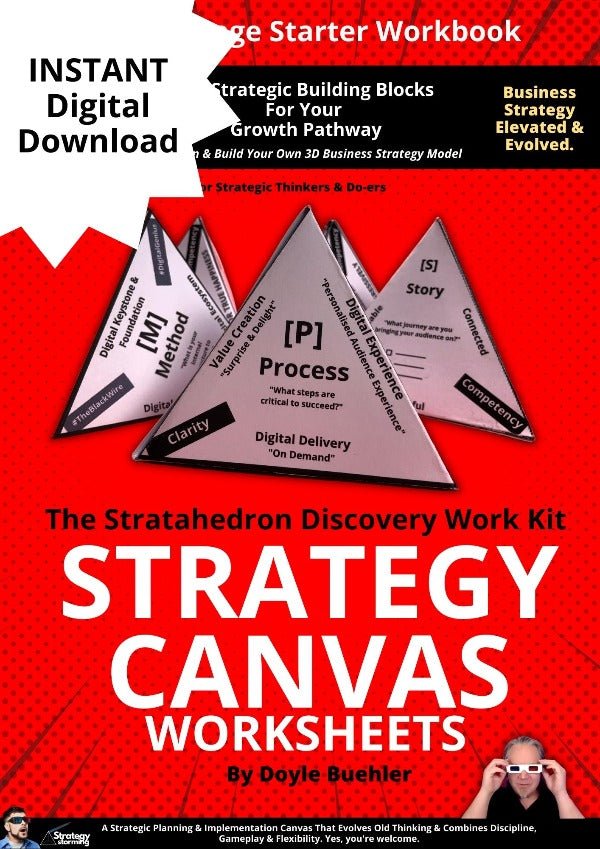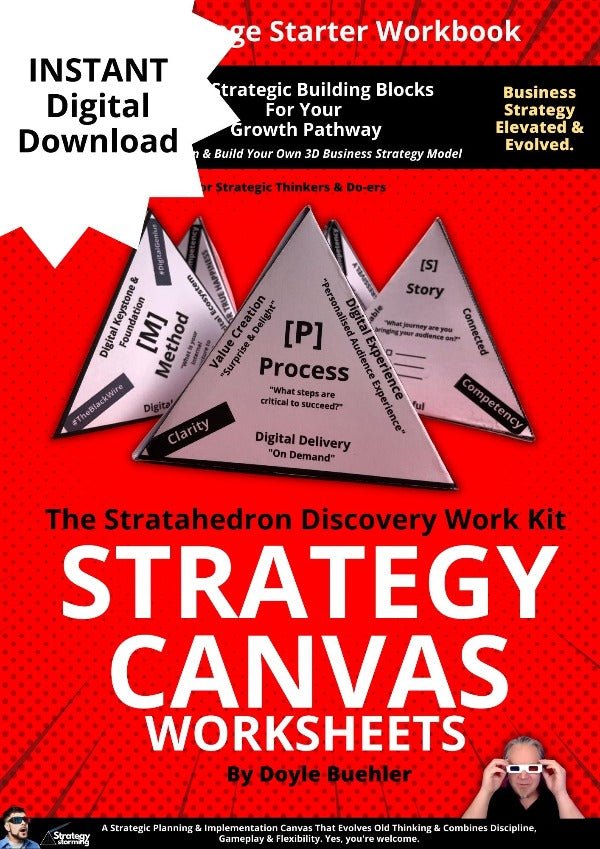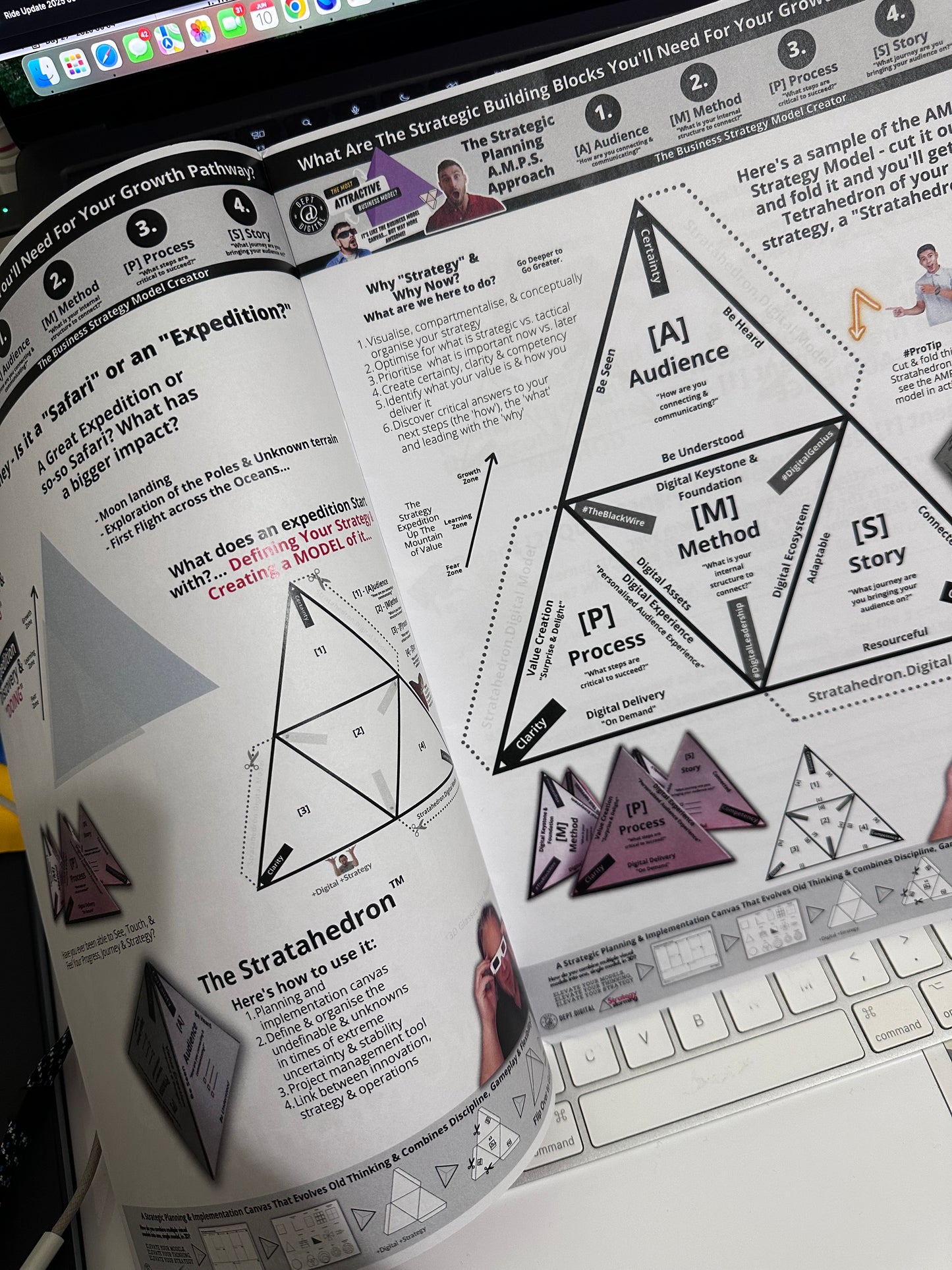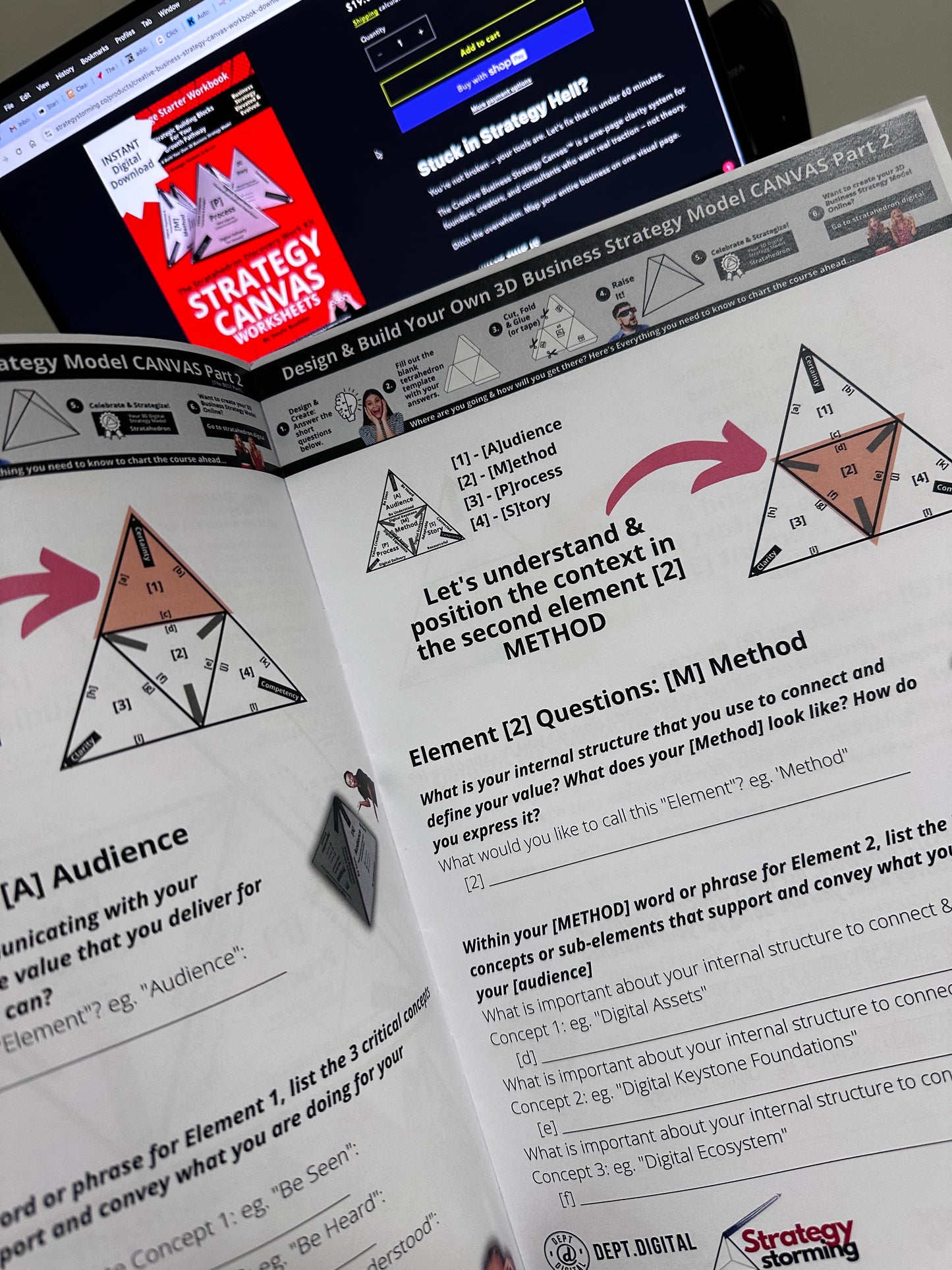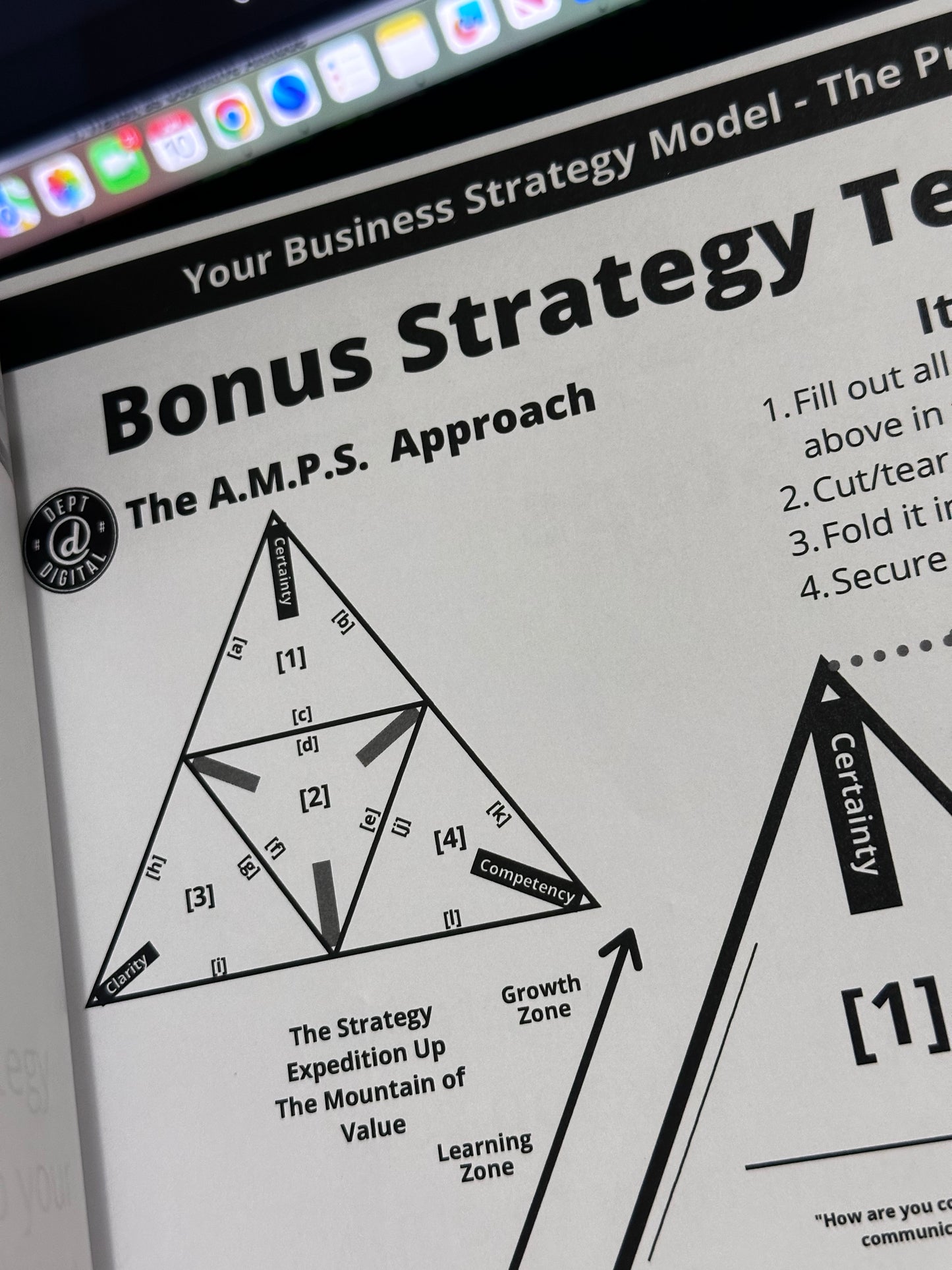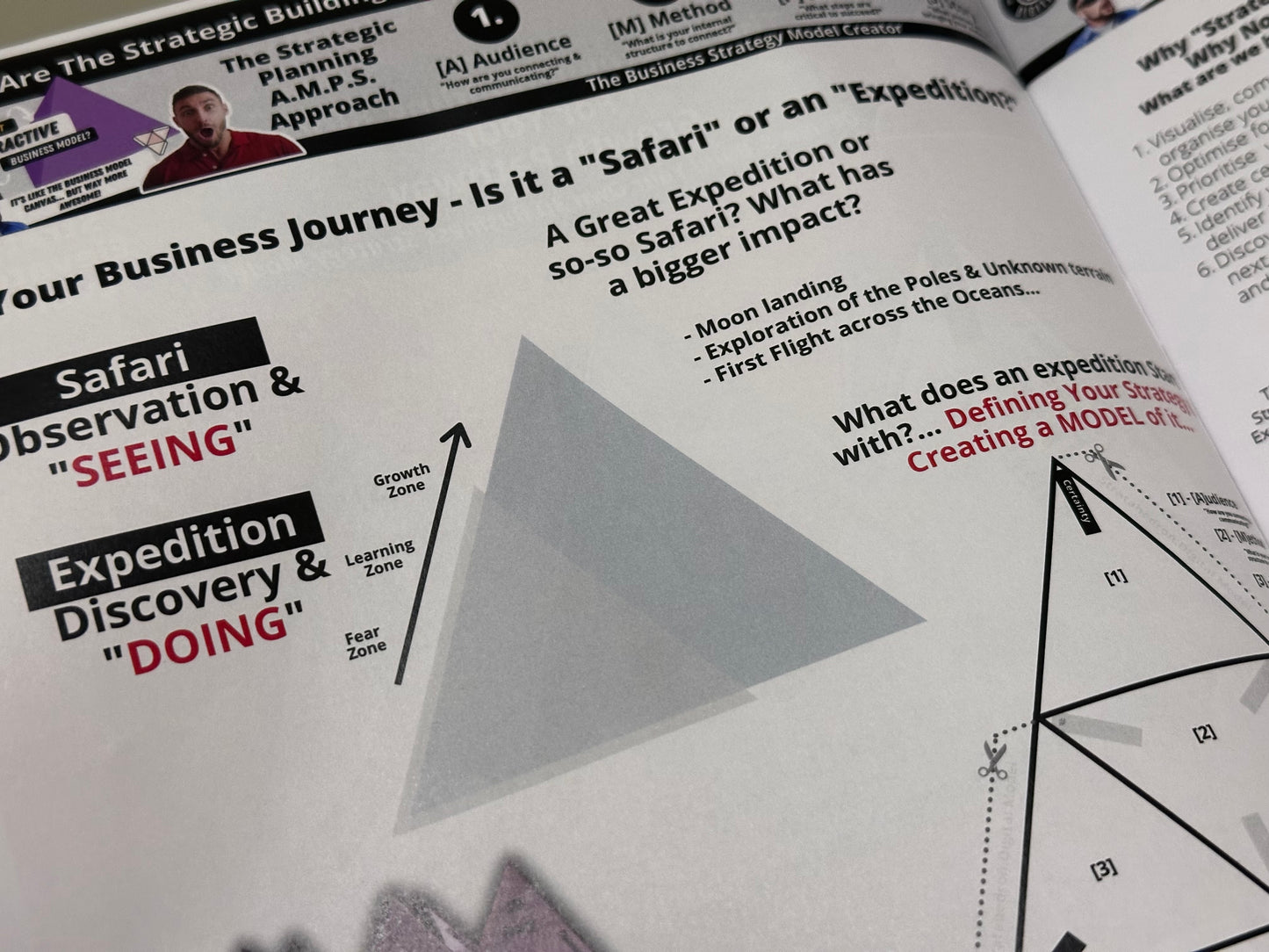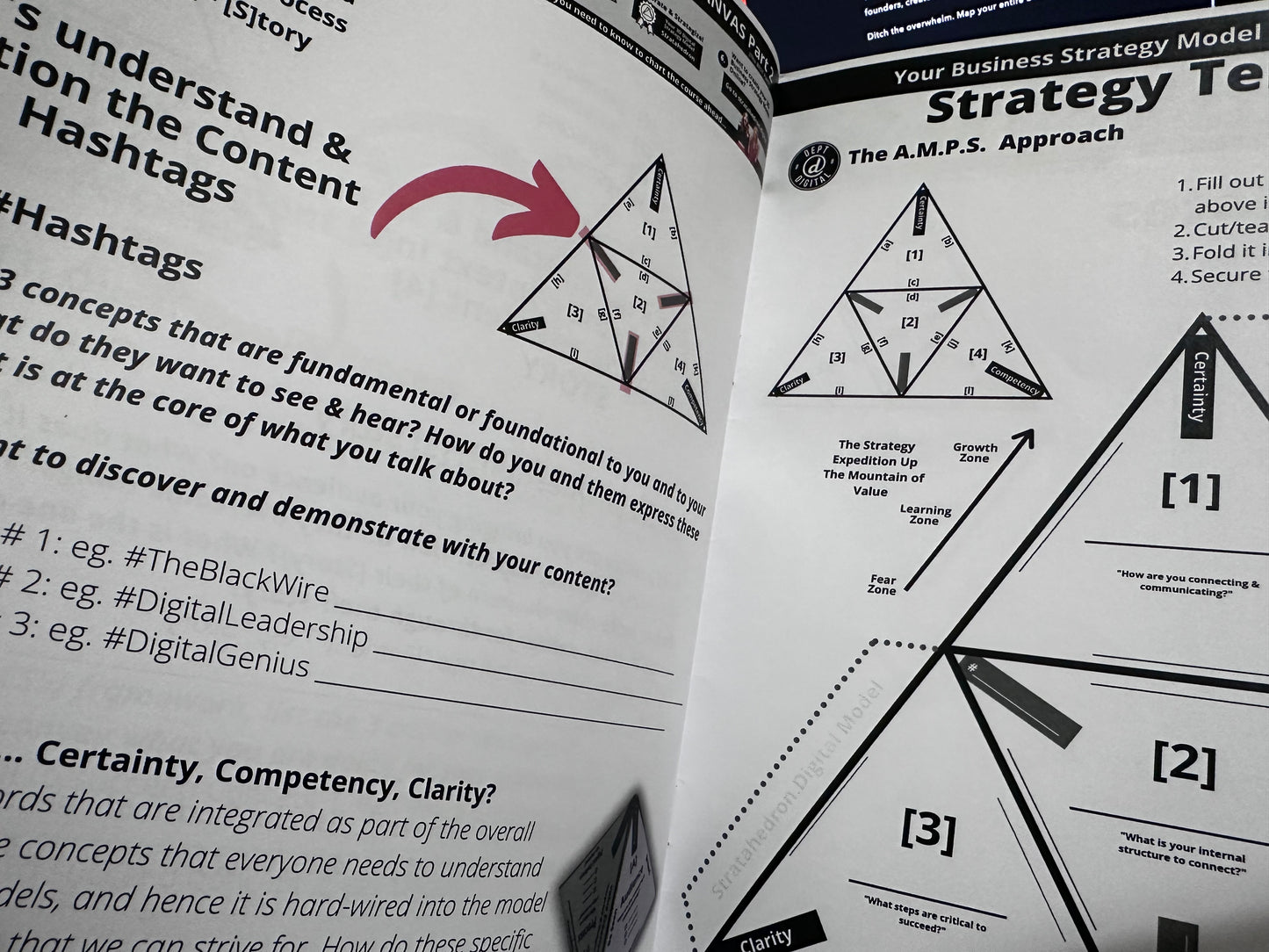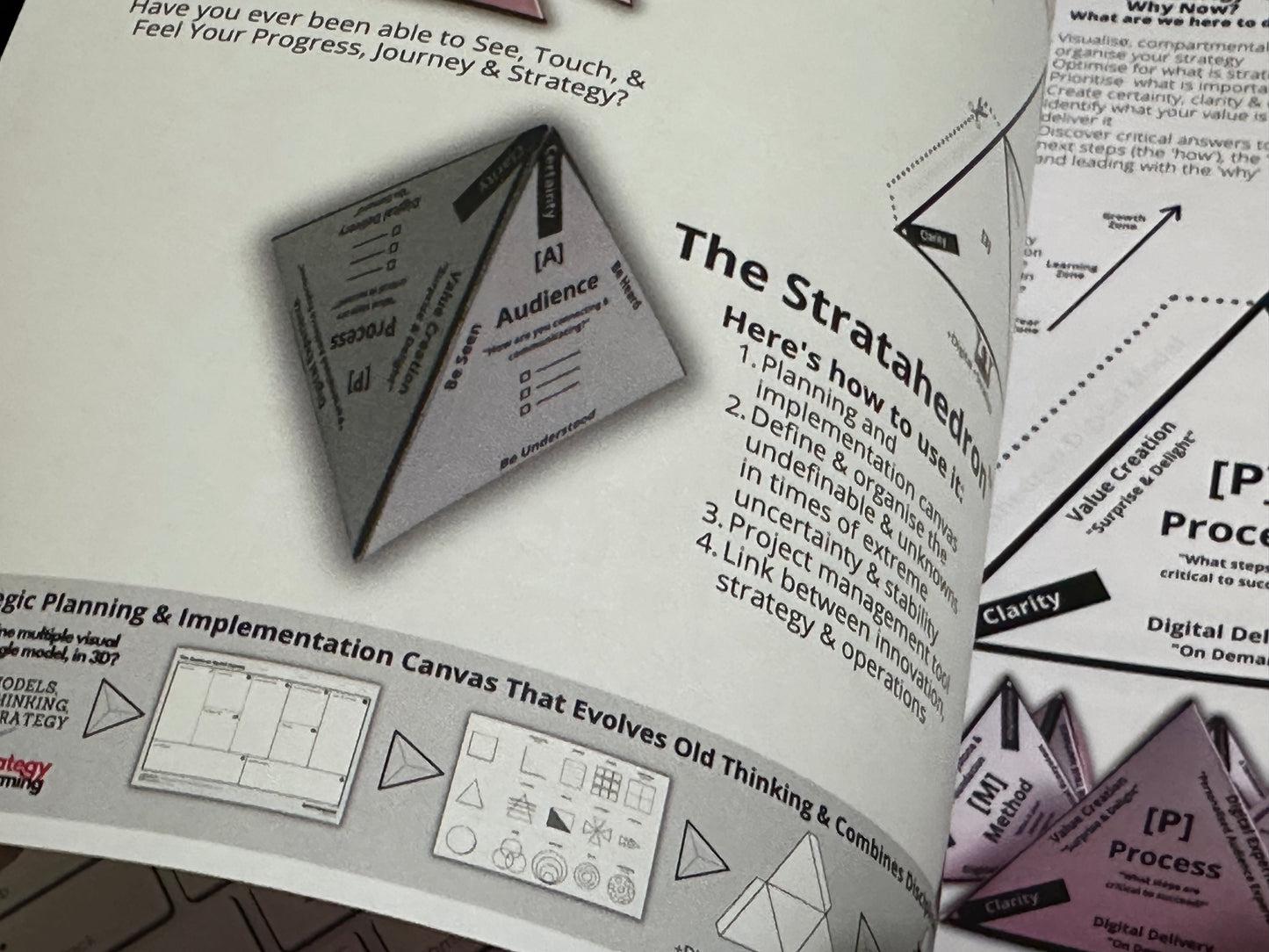
What You Think You Already May Know About Cognitive Biases...May Be Wrong
Share
What You Think You Already May Know About Cognitive Biases...May Be Wrong For Entrepreneurs, Consultants & Strategists
What is a Cognitive Bias?
A cognitive bias is essentially a mistake in our thought process that can skew the choices and judgments we form. Some of these biases stem from our memories, some are tied to our perceptions, and others are linked to what we focus on in the environment around us.
Unnoticeably, these biases can change our understanding and thinking about the world. They can notably alter our evaluation of risk and uncertainty - two crucial factors when developing a strategy or a concept for a business as an entrepreneur. For entrepreneurs, comprehending these biases can provide a crucial edge.
What does a Cognitive Bias do?
It equips you to make better, more insightful decisions, and formulate more effective strategies for your business.
For instance, you might be susceptible to the 'confirmation bias', where you tend to give more weight to information that aligns with your pre-existing beliefs and discount contradictory information.
By being aware of this, you can consciously diversify your sources of advice and achieve a more balanced and comprehensive perspective when strategizing for your business.
Another prevalent bias among entrepreneurs could be the 'optimism bias', where you might overestimate the chances of success and underestimate the potential risks.
How can we use Cognitive Biases to help with Business Strategy?
By acknowledging this, you can aim to develop strategies that are grounded in reality and consider both potential rewards and risks. Ultimately, understanding and adjusting for cognitive biases can lead to more informed and objective business decisions and strategies.
This knowledge can significantly contribute to your entrepreneurial success.
Cognitive biases can significantly affect an entrepreneur's decision-making process.
What Cognitive Biases should I be aware of as an Entrepreneur or Consultant?
Here are some key cognitive biases to understand for better strategy development for entrepreneurs and consultants:
Confirmation Bias: This is the tendency to seek, interpret, and remember information that confirms our pre-existing beliefs or hypotheses, while giving disproportionately less consideration to alternative possibilities. Entrepreneurs must actively seek diverse viewpoints to counteract this bias.
Overconfidence Bias: This is the propensity to overestimate our abilities and the success of our plans while underestimating the risks. Entrepreneurs should always try to base their decisions on objective data and analysis rather than overconfidence.
Availability Heuristic: This bias causes us to overestimate the importance of information that is readily available or recent. Entrepreneurs should ensure they're considering all relevant data, not just what is immediately accessible or top of mind.
Anchoring Bias: This bias refers to the tendency to rely too heavily on the first piece of information (the "anchor") when making decisions. Entrepreneurs should ensure they take into account a wide range of information before making decisions.
Hindsight Bias: Also known as the "knew-it-all-along" effect, this is the inclination to see past events as predictable. For entrepreneurs, understanding that past success doesn't guarantee future results can help maintain a forward-thinking strategy.
Sunk Cost Fallacy: This refers to the tendency to continue investing in a losing proposition because of what it has already cost. Entrepreneurs need to be able to cut their losses when evidence points towards failure.
How Many Cognitive Biases Do We Know?
There are 188 'known' cognitive biases. This Cognitive Bias Codex Infographic shows all of them together, and categorizes them into 4 groups of biases.
Grab the full image from the creators here via designhacks.co, or view the enlarged image here

What Biases Should You Be Aware of?
Understanding cognitive biases is crucial for consultants and entrepreneurs as these biases can impact decision-making and strategy formulation. Here's how they can be managed to create more effective business strategies:
Confirmation Bias: Consultants and entrepreneurs should ensure they consider multiple perspectives and avoid relying solely on information that confirms their existing beliefs. Using a structured decision-making process and actively seeking contradicting viewpoints can help.
Overconfidence Bias: Overestimating one's skills or the success rate of a project can lead to poor decisions. It's crucial to have an objective assessment of skills and project outcomes to devise realistic strategies. Regularly review and adjust assumptions based on objective feedback and data.
Availability Heuristic: To avoid overestimating the value of readily available information, consultants and entrepreneurs should conduct comprehensive research before making decisions. Look at historical trends, gather data from various sources, and validate assumptions.
Anchoring Bias: Consultants and entrepreneurs need to be aware of the initial information they receive, as it may unduly influence their decisions. It's important to seek additional information to get a balanced view before making any decision.
Hindsight Bias: It's essential to remember that just because a strategy worked in the past, it won't necessarily work again in the future. Businesses should continuously learn, adapt, and evolve their strategies based on current circumstances.
Sunk Cost Fallacy: Avoid sticking with a failing project just because of the time, money, or resources already invested in it. Consultants and entrepreneurs should make future-oriented decisions, and when evidence suggests a project is unlikely to succeed, be ready to move on.
By understanding and acknowledging these cognitive biases, consultants and entrepreneurs can better navigate their decision-making processes, leading to more effective and successful business strategies.
The Rules of Thumb For Your Brain Aren't Always Good Rules
Cognitive biases, the mental shortcuts or 'rules of thumb' we often unconsciously use, can significantly impact the strategic decisions made by consultants and entrepreneurs. Recognising and understanding these biases can help to build more effective, reality-based business strategies.
Ways to Recognise Cognitive Biases:
Self-reflection: Regular introspection and evaluation of your thoughts and decision-making processes can help identify any recurring biases.
Seeking Feedback: Regular feedback from colleagues, mentors, or even through anonymous surveys can help identify biases you might not see.
Education and Training: Learning about different types of cognitive biases can raise your awareness and help you identify when you might be falling into these traps.
Data Analysis: Using data to inform your decisions can help counteract biases. When data contradicts your instincts, it could indicate a bias.
Importance of Recognising Cognitive Biases:
Recognising cognitive biases is crucial because they can lead to flawed reasoning, poor decision making, and ineffective strategies. Understanding these biases can help you make more objective, rational decisions and avoid common pitfalls in your strategic planning.
Potential Consequences of Ignoring Cognitive Biases:
Poor Decision Making: Unrecognized biases can lead to decisions based on flawed assumptions or incomplete information.
Inefficient Use of Resources: Biased decisions can result in wasted time, energy, and resources on strategies that are not effective.
Reduced Objectivity: Failing to recognise these biases can limit your ability to evaluate situations objectively, affecting the quality of your strategies and potentially leading to business failure.
Missed Opportunities: Cognitive biases can cause you to overlook or undervalue potential opportunities.
By recognising and addressing cognitive biases, consultants and entrepreneurs can create more effective, balanced business strategies and make better decisions, leading to improved business outcomes.

Understanding Your Cognitive Biases for Strategy
Understanding these biases can help entrepreneurs and businesses avoid pitfalls and create more effective, objective strategies. Recognizing and accounting for these biases leads to better decision-making and ultimately, greater success.
What are the top 12 biases related only to how we make decisions in business?
Confirmation Bias: The tendency to favour information that confirms pre-existing beliefs and dismiss information that doesn't. This can cause business leaders to miss vital warning signs or opportunities. A manager might only pay attention to a project's successes while overlooking red flags, reinforcing their belief that the project is a success.
Overconfidence Bias: Overestimating one's abilities and the success of plans, leading to underestimating risks and potential pitfalls. An entrepreneur might believe their startup cannot fail, leading them to overlook market research that indicates a high probability of failure in their industry.
Anchoring Bias: Relying too heavily on the first piece of information obtained (the "anchor") when making decisions. This can result in failing to adequately consider subsequent information. A business owner initially quotes a higher price for their product based on cost of production. When determining the final price, they might be overly influenced by the initial higher price, even if market research suggests a lower price
Availability Heuristic: Overvaluing information that comes to mind quickly. This bias can make us overestimate the probability of similar things happening in the future. After hearing several news stories about cybersecurity breaches, a CEO might overestimate the likelihood of a similar attack on their own company and overspend on cybersecurity measures.
Hindsight Bias: Believing that past events were predictable or obvious after they've occurred, often leading to overconfidence about future predictions. A trader might believe they "knew all along" that a certain stock would rise, leading them to make riskier future investments, thinking they can predict market changes.
Sunk Cost Fallacy: Continuing a project or endeavor simply because of the already invested resources (time, money, effort), even when it's clear it's not beneficial to continue. A company continues to fund a product that isn't selling because they've already invested a lot of money into it, instead of cutting their losses and focusing on more promising products.
Status Quo Bias: The preference for keeping things the same by doing nothing or maintaining one's current or previous decision. This bias can hinder innovation and growth. A business might avoid adopting new technologies or processes due to the comfort of maintaining existing methods, even if change could lead to greater efficiency or competitiveness.
Groupthink: Suppressing opinions and conforming to the perceived majority view in decision-making groups, leading to poor business decisions. An executive team may decide to expand the business because everyone appears to agree, even though some members have private doubts. They don't voice these concerns for fear of breaking consensus.
Escalation of Commitment: The tendency to continue to invest in a failing project due to the cumulative prior investment. This can lead to the continuation of projects that should be abandoned. A business continues to invest in a failing branch or product, believing that more investment will eventually make it profitable, despite evidence to the contrary.
Neglect of Probability: Ignoring probability when making a decision under uncertainty. This can lead to irrational decisions in business strategies. A company doesn't prepare for a potential supply chain disruption, because they feel such disruptions are rare, even though the data shows that the probability is higher than they assume.
Survivorship Bias: Focusing on successful instances due to their visibility while ignoring failed ones. This can result in overly optimistic beliefs because failures are ignored. An entrepreneur might look at only successful companies in a certain sector and try to emulate them, ignoring the numerous failed businesses that tried the same strategies.
Loss Aversion: The tendency to prefer avoiding losses to acquiring equivalent gains. It's better to not lose $5 than to find $5. This can lead to risk-averse behavior and missed business opportunities. A company might avoid investing in a potentially profitable venture due to the fear of losing their initial investment, even though the potential gain is significantly higher than the possible loss.
Ready to Find Out Exactly How Your Cognitive Biases Can Affect Your Ability to Create Your Business Strategy?
How Do You Measure Your Biases, your Strengths, Weaknesses, Opportunities & Threats (SWOT) with Your Strategic Thinking?
Did you know that your Strategic thinking biases, strengths & weaknesses could be spotted within 2 minutes with a simple logic & emotion test?
You'll see how your best Neuromarketing Advantage can be coupled with Strategy & your strategic thinking, by understanding your biases.
It's strategic dynamics and shows you exactly what type of strategic thinker you are to solve your biggest challenges in business.
Take the assessment here and see what type of strategic thinker you could be.
Take our Strategic Dynamics Assessment tool to be rated against the cognitive biases and see exactly where you stand, and what you can do about it.
Related Posts
-

How to Use Strategy to Improve Revenue: A Comprehensive Guide
Finding ways to improve revenue is essential & possible with Strategy
-
![The Entrepreneur Journey is Broken? [Part 1] - Strategystorming - The Strategy Studio & Shop for Strategic Thinkers](//strategystorming.co/cdn/shop/articles/the-entrepreneur-journey-is-broken-part-1-590109.webp?v=1701206679&width=170)
The Entrepreneur Journey is Broken? [Part 1]
What if the Entrepreneur Journey could be different?
-

Creating Certainty in an Uncertain Business Environment with The Business Design Strategy Sprint
-

How do you build a Strategy Operating System?
-

Business Strategy Mastery Workshop - Strategy Masterclass October 2022 Intake - Session Now Closed
Business Strategy Mastery Workshop - Strategy Masterclass October 2022 Intake Now Closed. It's time to rethink & reinvent how we think about strategy, but also how we understand, design, and create it. Get the thinking, tools, and know-how to craft business strategy like never before.
-

8 Simple Questions Every Strategy Must Answer to Be Able to See Your Greatest Competitive Advantage
Your biggest competitive advantage that you can ever have is how you think and how you problem solve better than anyone else, especially in these challenging times.
This is your strategic thinking, only you have it, and your future really does depend on it.
-

Is Business An Art Or More About Science? Hint: It's Neither
👉Being more clever
👉Being more creative
👉Being more skillful
👉Thinking more strategically
👉Reducing complex ideas & problems
👉Crafting uncommon solutions
👉Embracing complexity
-
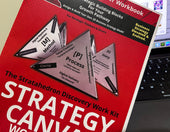
Is Your Strategy Still Just a Pile of Notes and Guesswork?
The Creative Business Strategy Canvas™ is the clarity tool I built after hitting that wall one too many times.It’s one page. Visual. Brutal. Honest.
It shows you your business — as it actually is — so you can build what it’s meant to be.
-

Reinventing Rapid Business Growth With The Strategy SuperModels
Enter The World of Business Strategy SuperModels - Redefine and Reinvent
-

Unlock Business Growth with The Growth Pathway Strategy GPS SuperModel
Unlock Business Growth with The Growth Pathway Strategy GPS SuperModel
-

4 Strategic Steps to Rethink and Reimagine SWOT Analysis for Your Business
Here's How to Reimagine & Customize your SWOT with a Custom SWOT Analysis Worksheet
-
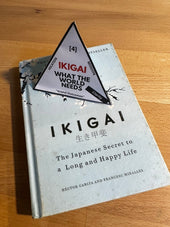
Reimagining & Reinventing Ikigai for Brand Strategy Design Consultants & Strategists
Exploring Brand Strategy Models & Case Studies In Strategy - The Reimagining of the Ikigai Model - The Strategy Super Model Series
-

Exploring Brand Strategy SuperModels & Case Studies in Strategy
-

FlightPath Day 80 of 100: Rhythm Over Hustle - How Founders don’t burn out from work
-

Want to Obtain Better Business Results in 4 Easy Steps? Keep it Simple - Here's A Really Simple Strategy With BIG Impact
-

10 Must-Haves to Master Your Digital Landscape - The Strategy Playbook
Transform Your Business Online With Clearcut Success Strategies In This Strategy Playbook
-

Do You Want to Lose Track of Your ‘Why’ & ‘How’ amongst all of the ‘WTFs’?
You’ll build out your business journey as your “FlightPath” with a close-knit group using the wisdom of your peers for reimagining your perspective, driving your OWN priorities & finding your OWN critical solutions.
-

How to Use Strategy to Improve Brand Awareness - The Brand Strategy Guide
Here's How to Use Strategy to Improve Your Brand Awareness
-

How to Use Strategy to Improve Market Share: What's Really Important?
How Do You Improve Market Share With Strategy?
-

How to Use Strategy to Improve Innovation - Your Innovation Playbook
Understanding the Connection Between Strategy and Innovation
-

How to Use Strategy to Improve Growth - A Definitive Guide
Strategy is an ongoing, dynamic process of Growth
-

10 Rules of a Strategy-Focussed Entrepreneur That Really Matter
What's really important for a strategy-focussed entrepreneur?
-

10 Rules That Really Matter for a Digital-Focussed Enterprise
Here's 10 simple rules to see if you are a digital-focussed business.
-

10 Invaluable Strategic Business Insights for Today’s Highly Competitive Business Environment.
10 invaluable insights for today’s highly competitive business environment using The Art of War
-

The Strategic Planning Success Blueprint: Navigating the Complex World of Planning With The Strategic Planning Checklist
-

The Annual Strategic Planning Panic Season Has Begun! Ditch the Drama, Embrace the Plan: Less Zigging, More Winning!
Strategic Planning Panic Season. Ditch the Drama, Embrace the Plan: Less Zigging, More Winning!
-

Unlock Your Business Brand Secrets: Master Your Brand & Strategy with the Strategystorming Sprint.
Don't let market disruptions steer you off course; take the helm of your business with unwavering confidence by mastering the art of strategic planning. This is your roadmap to not just surviving but thriving in today's volatile business landscape.
-

Can AI make you MORE Creative, Curious, Innovative AND more strategic? Yes or no?
Can AI make you MORE Creative, Curious, Innovative AND more strategic? Yes or no?
What if it could?
-

A Good Strategic Thinker And A BETTER Strategic Thinker - What's The Difference?
Improve your strategic thinking skills and increase your growth potential.
-

Good Strategy vs Bad Strategy. 5 Simple Symptoms To Identify a Really Bad Strategy.
What are the symptoms and signals that can help diagnose a potentially Good Strategy vs an ineffective Bad strategy?
-

Why Your Strategy Must Not Become A To Do List - The Only 5 Strategic Questions You Cannot Exist Without
By taking the time to answer these questions, you can develop a clear understanding of your company's purpose, its big idea, and how you're going to deliver value to your customers. This will help you to stay focused and on track as you build your business.
-

IMPACT: What would you actually do if you had more of it for your business?
Here's how to find and start to build your impact that lasts with digital strategy
-

The Business Top Gun's Playbook: Harnessing Speed of Strategy and Strategic Direction for Navigation for Impact
-

Which 4 Critical Components You Might Be Missing With Your Strategy - Here's How to Make Your Strategy Quicker, Cheaper & Easier
Is Your Strategy Too Hard? Here's How to Make Your Strategy easier to create, implement & execute without breaking a sweat
-

Strategystorming For Your Future: How Can Reinventing Strategy Help Future-Proof Your Business?
The Future May Be Uncertain, But You Don't Need To Be.
Strategystorming is a powerful tool for achieving success and creating a brighter future. By taking control of your destiny and developing effective strategies, you can overcome any obstacle and achieve your goals, no matter how big or small. -

The Power Of The Prompt - The Strategic Look At Artificial Intelligence Alignment & Business
-

Do You Have A Brand Plan? Here's how to Rethink & Stack the odds and start winning with a brand strategy
-

The 5 Key Strategic Factors You Need To Consider to Integrating AI into your Business Now. Here's How To Get Started to Integrate AI Effectively Into Your Business
5 Key Strategic Factors You Need To Consider In Integrating AI into your Business
What would happen if 80% of what you do is commoditized into the same thing that everyone else is doing? If you can no longer compete on price, and everything is now a commodity, what would you do? How can you accelerate your business while everything is accelerating around you?
-

What's Good Strategy or Bad Strategy? Fighting Fires Is No Longer a Startup Badge of Honour. We need to Reinvent How We Think About Strategy For Startups.
What's Good Strategy or Bad Strategy? Fighting Fires Is No Longer a Startup Badge of Honour. We need to Reinvent How We Think About Strategy For Startups and Smart Strategy for Business.
-
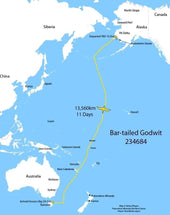
Sometimes we can be extremely surprised at how 'strategic' some things are when we compare it to other things. Here's a case in point.
Here's a case in point about how to get epic things done...strategically - without trying that hard.
-

Anyone can start a business, but can you finish one? Can you get yours to the finish line without a strategy?
Anyone can start a business, but it takes a special skill to finish one - strategy builds a business built to last. Are you building your business to last? It’s not a map, not a business model, not a SWOT, not a business plan, not a 1-page Marketing Plan; it's your strategy operating system that defines the difference.
-

Strategy is about change, and we are all architects of change with our strategic thinking
You're In The Business of Change. You Just Don't Know It...Yet.
What does it take to see Change?
How do we adapt change and think more strategically in the solutions that we deliver, and want to deliver?
-
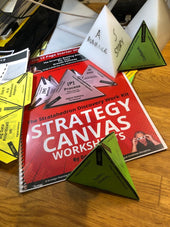
Why being agile doesn’t save a small business? It’s more about your strategic thinking.
The solution to being agile is more about strategy and your strategic thinking ability
-

The Strategystorming Strategy Studio & Shop Launch Event Speakers Summary
It's strategic clarity & #certainty to help you know how to craft a better strategy, and use strategic & tactical tools for profitable growth and a superior ROI by leveraging the power of your brand.
-

The True Power of Reinvention for Business & Rethinking How We Create Remarkable, Winning Strategies - The Strategystorming Strategy Studio & Shop Launch
-

The Truth About What You Should Be Focussing More On in Your Business - Hint: It's 99% invisible
We don't investigate fully how our customers and audience are thinking - we simply gloss over what we think they need. We rarely feel that we 'need' a strategy to enhance what we're doing to drive profitability and how to win - or that it's something that only big companies have to do to please their corporate rulers. And, seldom do we use any systems to create better efficiencies.
-

How Easy Is It To Sacrifice Tomorrow for Today, Without Even Knowing It? Are You A Slave To The Now Because of Your Strategy in Business?
How Easy Is It To Sacrifice Tomorrow for Today, Without Even Knowing It? Are You A Slave To The Now Because of Your Strategy in Business?
-
![#SmartStrategy [Designing Your Strategy For Business] - Strategystorming - The Strategy Studio & Shop for Strategic Thinkers](//strategystorming.co/cdn/shop/articles/smartstrategy-designing-your-strategy-for-business-256943.jpg?v=1693515536&width=170)
#SmartStrategy [Designing Your Strategy For Business]
Strategy is often what you need to do, but also what you don't need to do. It tells you what you see, but also what you don’t see.
-

Is Bigger All There Is in Business? What does the word GROWTH actually mean for GROWING a business?
If only we could grow more, if only we could scale more, if only we could...
-

Is 'Bigger' All There Is? Reinventing & Rethinking Your Business With Strategy
Strategystorming is the new thinking place where we become better strategic thinkers, by applying strategy here and now, sharing what strategy is for business, and how best to realise it and craft it into remarkable experiences.
-

Do You Know The Biggest Reasons Why a Business Fails? It's Not Because of Tech & Creativity
Why does a business fail, and what can you do about it?
Planning & #strategy is not a "to-do list"
It's not even a list of goals you want to achieve, or "what do you want to become in 2022?" (are you a flower? 😂)
-

What will it take for things to return to business as usual?
It's not business as usual anymore. The Easy Strategy Lab is where we find out how to Reinvent & Reimagine & Rethink business.
We are back with a Strategystorming Show on the 4 greatest myths about strategy, change & reinvention - the misconceptions and outdated assumptions that might be killing your efforts or the efforts of your clients today.
-

Strategy Expeditions for Reinvention, Growth & Performance by Strategystorming - The Strategy Mastery Training Course Workshop
What's Creative Intelligence & Strategic Innovation?Learning strategy and implementation with creative tools and storytelling.Unleash the potential within your business or clients to solve your unique business challenges and create dynamic resilient futures.Meet our Creative Intelligence and Strategic Innovation course - Strategy Mastery Training.
It's education, but not as you know it.
It's a workshop Expedition - a Strategy Expedition to get you to your destination... and back, learning, creating, understanding and crafting your ultimate strategy of resilience & success.

![The Entrepreneur Journey is Broken? [Part 1] - Strategystorming - The Strategy Studio & Shop for Strategic Thinkers](http://strategystorming.co/cdn/shop/articles/the-entrepreneur-journey-is-broken-part-1-590109.webp?v=1701206679&width=170)













































![#SmartStrategy [Designing Your Strategy For Business] - Strategystorming - The Strategy Studio & Shop for Strategic Thinkers](http://strategystorming.co/cdn/shop/articles/smartstrategy-designing-your-strategy-for-business-256943.jpg?v=1693515536&width=170)




